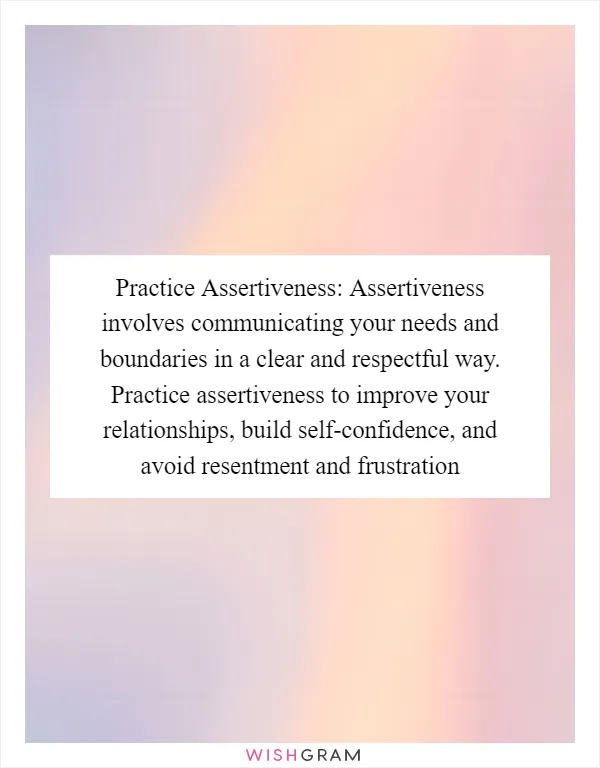Practice Assertiveness: Assertiveness involves communicating your needs and boundaries in a clear and respectful way. Practice assertiveness to improve your relationships, build self-confidence, and avoid resentment and frustration
Assertiveness is an important skill that can greatly benefit your relationships and overall well-being. It involves expressing your needs and setting boundaries in a clear and respectful manner. By practicing assertiveness, you can enhance your self-confidence, prevent resentment and frustration, and foster healthier connections with others.
When you practice assertiveness, you communicate your desires, opinions, and limits effectively. This allows others to understand your perspective and helps you avoid feelings of being taken advantage of or unheard. By expressing yourself assertively, you can establish healthy boundaries that protect your emotional and physical well-being.
One of the key benefits of practicing assertiveness is the improvement it brings to your relationships. When you clearly communicate your needs and boundaries, it becomes easier for others to understand and respect them. This leads to healthier and more balanced interactions, where both parties feel heard and valued. Assertiveness can help you build stronger connections with your loved ones, friends, colleagues, and even strangers.
Moreover, assertiveness plays a crucial role in building self-confidence. When you assertively express yourself, you are acknowledging your own worth and valuing your needs. This self-assurance can boost your confidence and empower you to take control of your life. As you practice assertiveness, you will become more comfortable advocating for yourself and asserting your rights, which can have a positive impact on various aspects of your life.
By practicing assertiveness, you can also avoid resentment and frustration. When you consistently communicate your needs and boundaries, you reduce the likelihood of feeling taken advantage of or neglected. This proactive approach helps prevent misunderstandings and allows you to address issues before they escalate. By expressing yourself assertively, you can maintain healthier relationships and prevent negative emotions from building up over time.
To practice assertiveness, start by identifying your needs and boundaries. Reflect on what is important to you and what you are comfortable with. Then, find ways to express these needs and boundaries clearly and respectfully. Use "I" statements to express your feelings and avoid blaming or criticizing others. Remember to maintain a calm and composed demeanor, even if the conversation becomes challenging.
It's important to note that assertiveness is not about being aggressive or confrontational. It is about finding a balance between being respectful towards others and valuing your own needs. By practicing assertiveness, you can create a positive and open environment for communication, leading to healthier and more fulfilling relationships.
